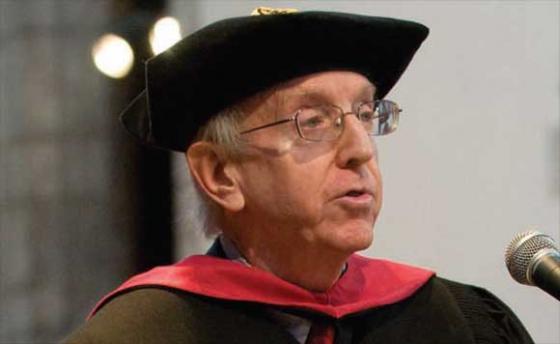U.S. Circuit Court Judge Richard Posner rejected arguments from both sides on Thursday, effectively canceling the case ahead of its scheduled June 11 start date, reports Bloomberg.
“You have to prove injury,†Judge Posner said at the end of the last pretrial conference.“I’m sorry that it seems to be petering out like this.â€
The suit was merely one of a number of cases between the two companies but was significant in that it would have been the first to go to trial since Google officially assimilated Motorola Mobility in March.
Leading up to today's decision, Judge Posner had been extremely critical of filings presented by both sides and seemingly the case in general. In February the judge complained that too many patents were being leveled and asked Apple to "winnow" its claims. This was followed by a critique of Apple's request for certain documents pertaining to Google's takeover of Motorola as being too "vague." Apple's legal tactics were also brought into question as Judge Posner called an early April motion to reconsider "troubling," saying that the document's two main arguments are "flagrant misreadings" of a March order. Most recently the judge said he was tired of "frivolous filings by Apple" and forbade the company from submitting further motions without first moving for leave to file.
The Journal of Legal Studies labeled Judge Posner as being the most-cited U.S. legal scholar of the 20th century and the distinguished 73-year-old jurist is the author of nearly 40 books which range in subject matter from jurisprudence to economics.
Judge Richard A. Posner speaking at the University of Chicago where he is a senior lecturer. | Source: University of Chicago
Apple first filed its case in Wisconsin as a countersuit to a Motorola ITC complaint filed in October 2010. The iPhone maker began by citing six patents, but that number quickly swelled and reached a high-point of 24 in December 2010. As of Thursday, Apple had pared down its claims to include only four patents.
Judge Posner is still deliberating whether to move forward with an Apple request for injunctive relief and said he would issue a statement later today.
 AppleInsider Staff
AppleInsider Staff







-m.jpg)






 Charles Martin
Charles Martin
 Christine McKee
Christine McKee
 Wesley Hilliard
Wesley Hilliard
 Malcolm Owen
Malcolm Owen
 Andrew Orr
Andrew Orr
 William Gallagher
William Gallagher
 Sponsored Content
Sponsored Content








75 Comments
This is far from over. Posner might be renowned but he's still just a Circuit Judge and here are levels above him. Apple and Samsung will just go the next step up.
Injury or not, if someone is violating your IP you have a right to smack them down with at least a legal order to cut it out or get fined in the future.
Apple and Samsung will just go the next step up.
Motorola.
I'm wondering if this judge at 73 is still learning from experience - and thus improving and more rational in his thoughts and decisions... or is he past his sell-by date and thinking more about the easy life of putting his feet up in a retirement garden... so tossing out the difficult cases on a whim!
I'm certainly no attorney nor judge, but he was so friggin hot on the topic of jurisprudence he should have tossed this before it got this far.
As far as economics, maybe he just wasn't making enough on the side...